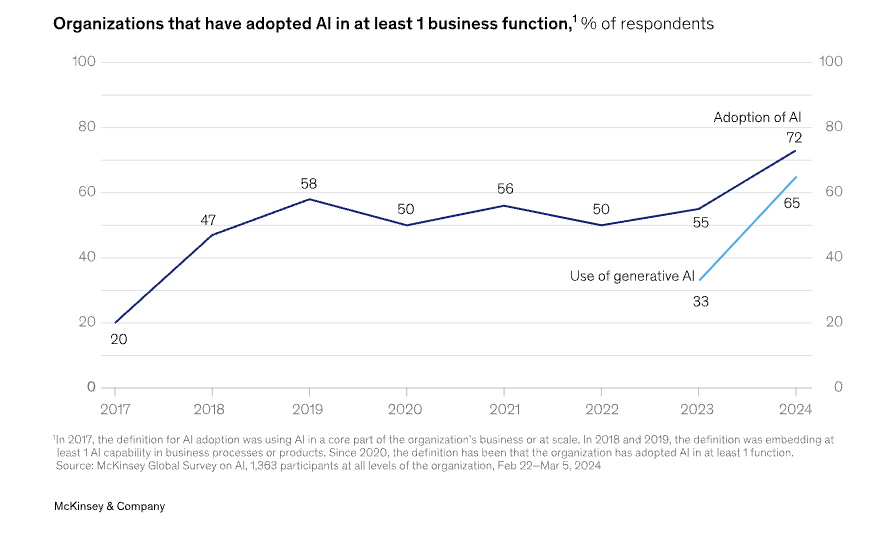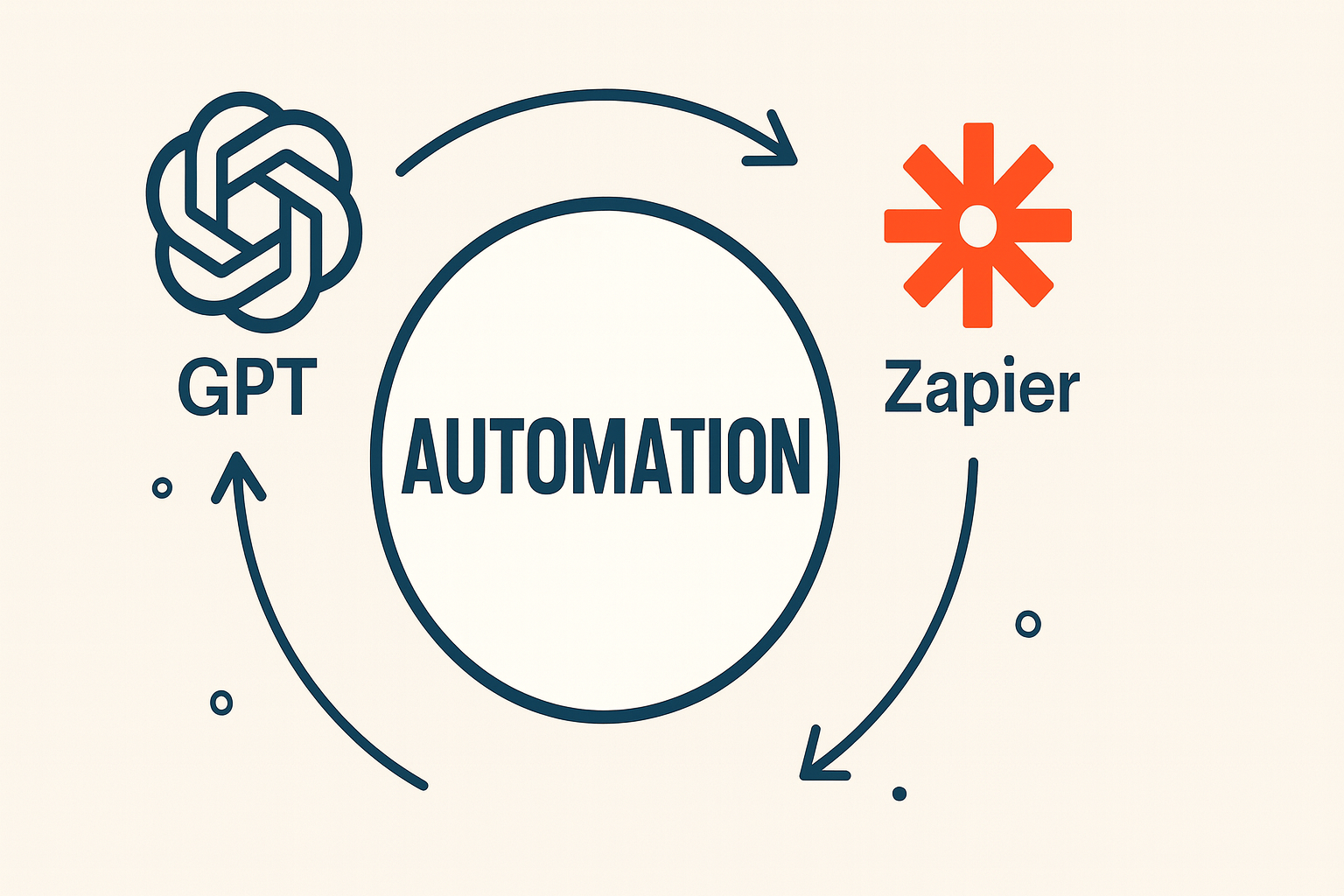According to a McKinsey 2024 report, companies that integrate AI into their operations are seeing up to 40% faster decision-making and 20–30% improvement in operational efficiency.
But for most organizations, the real question isn’t what AI can do. It’s how to actually use it effectively. That’s where AI development services come in turning buzzwords into real business results.
Let’s explore how businesses are achieving that transformation.
What Are AI Development Services
AI development services are end-to-end solutions that help companies design, build, and integrate AI systems into their workflows.
In simpler words they help businesses move from manual work to intelligent automation.
These services typically include:
- AI Strategy & Consulting
- Model Design & Training
- Integration
- Automation & Analytics
Example: An e-commerce company using AI to predict customer buying patterns can optimize stock levels, saving thousands in inventory costs while boosting sales.
The Real Business Impact of AI
The rise of AI isn’t just a technological trend. It’s an operational revolution. Businesses using AI development services report tangible results across performance, customer experience, and cost management.
1. Higher Return on Investment
According to the latest McKinsey Global Survey on AI (2024), organizations are rapidly expanding their use of AI across multiple business areas. The number of companies using AI in one or more functions has grown to 72%, up from just over 50% in 2021. Companies strategically implementing AI see up to 3.5x higher ROI within their first year.

For example, businesses using AI-based lead scoring close sales faster by focusing on high-probability clients, improving both revenue and marketing efficiency.
2. Increased Efficiency
AI helps eliminate bottlenecks in day-to-day operations. From generating invoices automatically to managing large volumes of data, AI solutions can handle tasks that typically require multiple employees. Studies show that automation can reduce operational workload by up to 40% and free teams to focus on creativity and innovation instead.
3. Smarter Decision-Making
Predictive analytics — one of the most powerful outcomes of AI development — helps organizations forecast outcomes based on real data. Finance teams use AI to predict cash flow and manage risk, while HR departments use it to analyze hiring patterns. Instead of acting on assumptions, teams can make data-backed decisions in real time.
4. Better Customer Experience
AI has revolutionized customer engagement. From chatbots that resolve support tickets instantly to recommendation systems that understand user preferences, AI allows brands to deliver more personal, timely, and relevant interactions. Even small businesses now deploy conversational AI tools to respond to customers 24/7, building trust and loyalty without extra manpower.
How Businesses Are Actually Using AI Development Services
AI is not limited to a single industry. Its applications are reshaping how entire sectors function.
Healthcare
Hospitals and healthcare startups use AI for diagnostics, medical imaging, and patient monitoring. Machine learning algorithms analyze thousands of scans in seconds, often identifying early signs of disease with higher accuracy than human experts. This reduces diagnosis times, improves outcomes, and helps doctors focus on patient care rather than manual data review.
E-commerce
E-commerce platforms rely heavily on AI-driven insights. Algorithms analyze past behavior, browsing patterns, and purchase history to offer dynamic pricing and hyper-personalized recommendations. AI also helps optimize marketing spend by identifying which channels and campaigns generate the best ROI.
Manufacturing
AI in manufacturing improves production forecasting, predictive maintenance, and quality control. Machines equipped with sensors collect real-time performance data, helping companies detect potential issues before they become costly failures. Manufacturers adopting AI-based maintenance systems have reported up to 25% reduction in downtime.
Finance
The financial industry has been one of the earliest adopters of AI. From automating fraud detection to credit scoring and investment prediction, AI minimizes human error and boosts operational speed. Many financial institutions use AI chatbots for customer queries, improving engagement while reducing call center costs.
Common Myths About AI Development
Despite its success, there are still misconceptions that stop many companies from taking advantage of AI. Let’s clear them up.
“AI will replace human jobs.”
AI replaces repetitive tasks, not human creativity. It automates the mechanical side of work, allowing people to focus on strategy, empathy, and innovation. In reality, the rise of AI has created thousands of new roles — from prompt engineers to data strategists.
“AI is only for large corporations.”
This was once true, but no longer. With accessible platforms like OpenAI, Google Cloud, and Azure AI, even small and mid-sized companies can integrate AI affordably. Many businesses start with simple automation — like chatbots or workflow triggers — and scale up as they grow.
“AI systems are too expensive or complex.”
Modern AI services are modular, meaning companies can start small and expand over time. Cloud-based systems make it possible to rent computing power on demand instead of purchasing expensive infrastructure. This flexibility lowers entry costs and reduces risk.

How to Choose the Right AI Development Partner
Selecting the right AI partner is as important as choosing the right technology. A reliable team ensures your AI system not only works but evolves with your business.
1. End-to-End Expertise
Your partner should cover the entire process — from planning and consulting to development, deployment, and long-term optimization. This ensures seamless integration between AI solutions and your existing workflows.
2. Domain Knowledge
Every industry has unique challenges and data types. An experienced AI company should understand those nuances. For instance, building an AI system for healthcare requires knowledge of patient privacy laws, while e-commerce systems rely on behavioral data.
3. Ongoing Support
AI isn’t a “set and forget” solution. It requires continuous updates, data retraining, and monitoring. Choose a partner who offers post-deployment support and iterative improvements.
At Wavenest.ai, our AI development team helps companies move beyond experimentation, delivering systems that truly scale. From automation to analytics, our goal is to help you unlock AI’s full business potential.
The Next Step for Every Business
Artificial intelligence is no longer just a futuristic concept — it’s an essential part of modern business strategy. Organizations that adopt AI today are not just keeping up with competitors; they’re getting ahead of them.
The question isn’t whether you should integrate AI — it’s how fast you can start.
If you’re ready to automate repetitive work, make smarter decisions, and unlock growth, now’s the time to take the first step.
Talk to our AI experts to discuss how custom AI development can transform your business operations.




